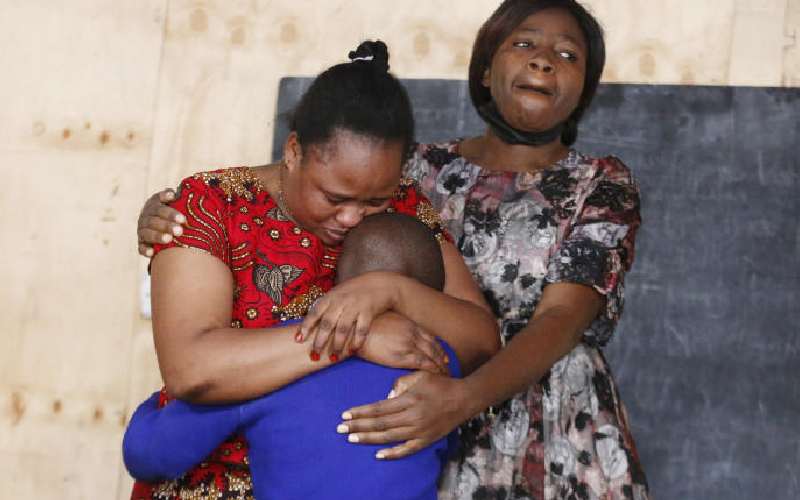×
The Standard e-Paper
Join Thousands Daily

Jacqueline Khalenya and her son Rhonick Omondi are re-united by Nelly Bulimu, a teacher at Neemaland Queens and Kings Centre in Riruta Satellite.[Stafford Ondego, Standard]
Take a moment and think about how many missing child posters you see daily on social media.